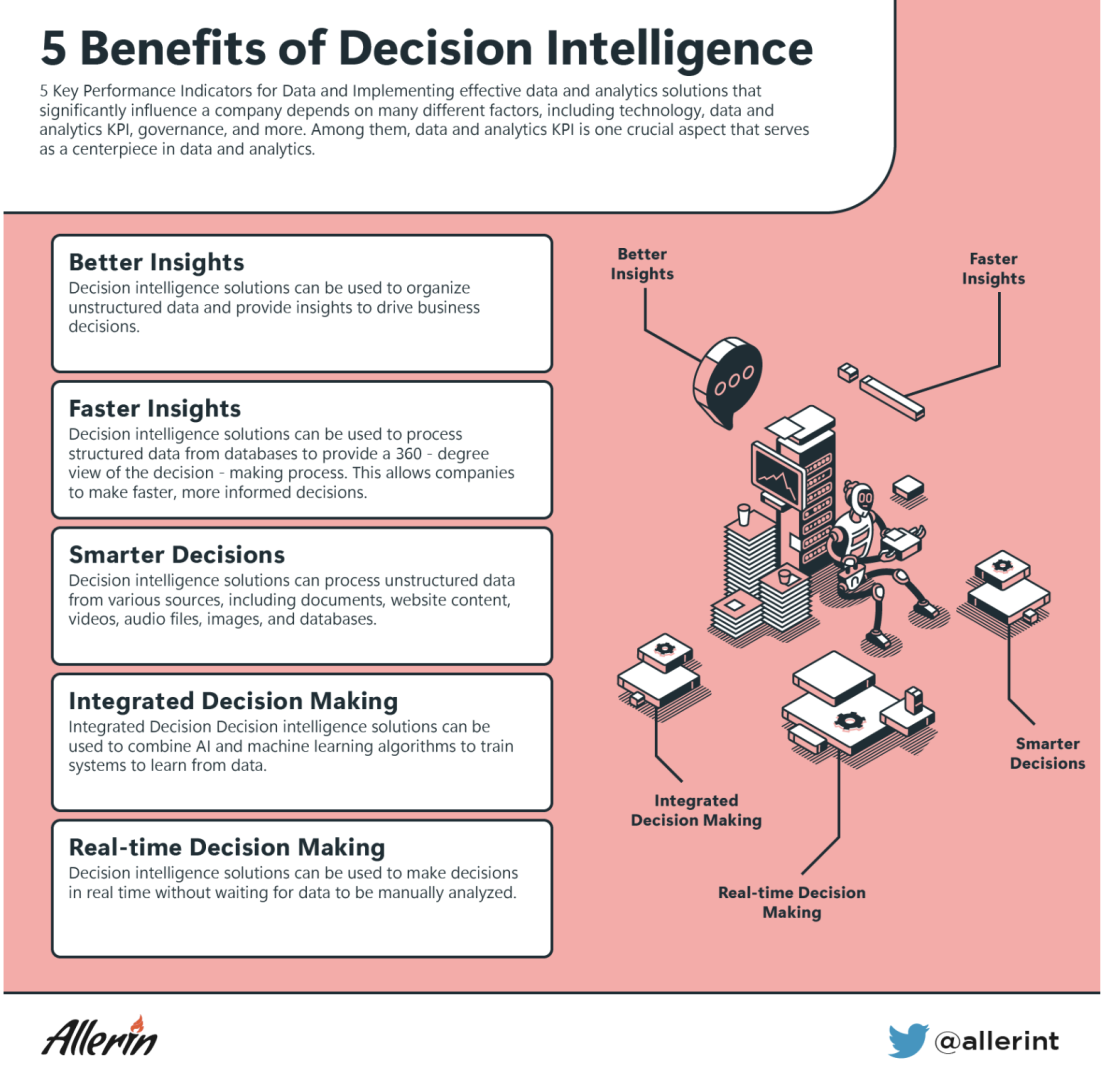TECHNOLOGY
5 Benefits and Use Cases of Decision Intelligence

Businesses can use decision intelligence solutions to gain a 360-degree view of the managerial process, allowing them to make more informed decisions.
Data is growing exponentially, and the amount of data will continue to grow. But with more data comes a need for smarter analytics to help decision-makers make faster and more informed decisions. Many companies are now investing in decision intelligence solutions (also known as analytical technologies or artificial intelligence systems) to solve this problem. These solutions combine machine learning with natural language processing, visual recognition software, and other cognitive computing services to produce digital advisors that act as virtual analysts. With the help of artificial intelligence and machine learning algorithms, these solutions can process unstructured data from a variety of sources, including documents, website content, videos, audio files, images, and databases. They also have access to structured data from APIs and databases that contain information about a company’s customers or business partners. These decision intelligence solutions use this information to create actionable insights that can be used to drive business decisions without relying on manual analysis.

As businesses process more data, they need to be careful to avoid analysis paralysis, a state in which there is so much information that no decision can be made. With so much data at their disposal, decision-makers may become overwhelmed and end up with paralysis by analysis. In order to combat this problem, many companies are turning to decision intelligence solutions to help turn data into actionable insights. Decision intelligence solutions provide a 360-degree view of the decision-making process to organize unstructured data and provide insights to drive business decisions.
Decision intelligence solutions have several benefits, including the following:

Better Insights
Decision intelligence solutions can be used to organize unstructured data and provide insights to drive business decisions.
Faster Insights
Decision intelligence solutions can be used to process structured data from databases to provide a 360-degree view of the decision-making process. This allows companies to make faster, more informed decisions.
Smarter Decisions
Decision intelligence solutions can process unstructured data from various sources, including documents, website content, videos, audio files, images, and databases.
Integrated Decision Making
Decision intelligence solutions can be used to combine AI and machine learning algorithms to train systems to learn from data.
Real-time Decision Making
Decision intelligence solutions can be used to make decisions in real time without waiting for data to be manually analyzed.
Decision intelligence solutions have several use cases, including the following:

Automating Manual Processes
Decision intelligence solutions can be used to automate manual processes and make them more efficient.
Increasing Customer Satisfaction
Decision intelligence solutions can be used to gather insights from customer data to increase customer satisfaction by providing personalized recommendations or suggestions.
Growing Business
Decision intelligence solutions can be used to gather insights from customer data to increase business growth by making personalized recommendations or suggestions.
As data continues to grow, businesses need smarter analytics to help decision-makers make faster and more informed decisions. Decision intelligence solutions combine AI, machine learning, and data management to create digital advisors that can be used to organize unstructured data and provide insights to drive business decisions.


















You must be logged in to post a comment Login